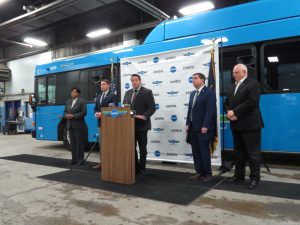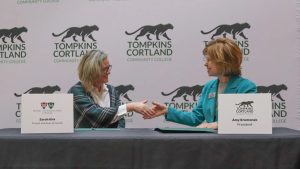ALBANY, N.Y. — SUNY Chancellor John King, Jr. on Tuesday announced new system-wide requirements for SUNY’s undergraduate general-education curriculum, beginning with the incoming fall 2026 cohort.
The new requirements approved by the SUNY board of trustees add a civic discourse component to the general education core competencies, as well as an update to the existing information literacy core competency “in order to reflect the rise of emerging technologies and artificial intelligence [AI],” SUNY said.
The newly added civic discourse component ensures students gain the skills necessary to participate in civic life and engage in healthy dialogues to secure the future of democracy. This addition is part of SUNY’s broader civics and service agenda, the state university system said.
(Sponsored)

ESOP Benefits for Architecture and Engineering Firms
Planning an exit strategy from your successful architecture or engineering firm can be difficult at times. While there are many options to choose from, one that many companies fail to

Does Your Nonprofit Need an Annual Audit?
Many people wonder if a nonprofit needs an annual audit, and the answer is—it depends.Although there is no federal requirement that all tax-exempt organizations undergo an audit, many possible triggers
Additionally, the revised student-learning outcomes for information literacy are focused on ensuring students have the skills to effectively recognize and ethically use artificial intelligence.
Students will not be required to take additional credits once the curriculum requirements are implemented, according to the announcement.
“Our institution is proud to lead the nation in public higher education opportunities,” Stanley Litow, a member of the SUNY board of trustees, said. “The changes made to the General Education Framework are critically important and will bring our curriculum up to date in both AI and civic discourse. I am confident the changes approved by the Board of Trustees will ensure the success of our students both inside and outside the classroom, and positively impact society, as the world continues to change around them.”




